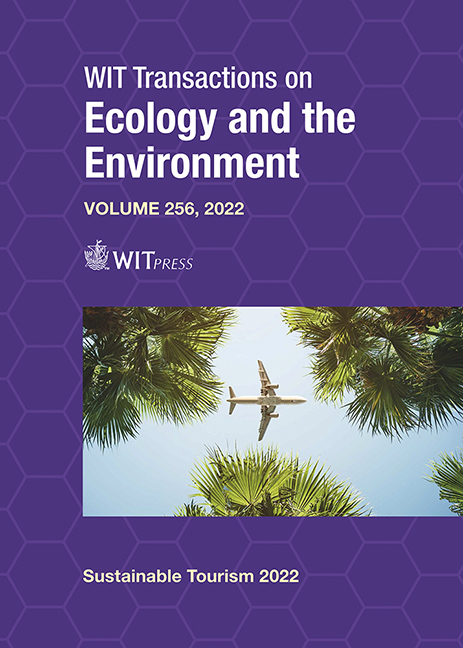SUSTAINABLE HOTEL DESIGN STRATEGIES: TOURISM AS A TOOL FOR CIRCULAR BIOECONOMY IN FRAGILE ECOSYSTEMS
Price
Free (open access)
Transaction
Volume
256
Pages
12
Page Range
13 - 24
Published
2022
Paper DOI
10.2495/ST220021
Copyright
Author(s)
ALEXANDROS KITRINIARIS
Abstract
This paper focuses on the exploration of sustainable design strategies of hotels and resorts located on fragile ecosystems with the aim of reversing climate change and addressing the encroachments on nature and mishandling of waste that together lead to increased risk of repeated pandemics, thus making our planet more resilient to both. The tourism industry is responsible for 5% of greenhouse gas (CO2) emissions and is expected to increase by 130% by 2050. The World Tourism Organization and the United Nations Development Programme are committed to inspiring and facilitating collaboration with stakeholders to advance the contribution of tourism to the sustainable development goals. To this end, the paper explores the sustainable design strategies of the 6-star sustainable hotel and resort, Caves & Waves, as a case study. The resort is fully integrated into the natural landscape, it takes advantage of the orientation and sea view with integrity throughout all the common and private spaces, 10% of the total capacity facilitates disabled access, it favours natural cooling and airing of the spaces, it is constructed from natural and recyclable construction materials (local stone, wood), it uses renewable energy sources (solar rooves), it reinforces local vegetation, it handles water recirculation, waste processing, and garbage recycling correctly, and as a result, it is integrated into the international network of sustainable constructions by minimizing its ecological footprint, while simultaneously increasing its positive effect on the environment. Through the analysis of the above-mentioned case study, the paper highlights the key sustainable tourism design strategies regarding the 3-zero triple bottom line concept committed to zero kilometres, zero carbon dioxide and zero waste with the aim of handling the tensions between sustainable hotel design in fragile ecosystems and commitments to business development and continuing economic growth.
Keywords
sustainable tourism, sustainable development, climate change, circular economy, ecological, hotel design strategies, fragile ecosystems





